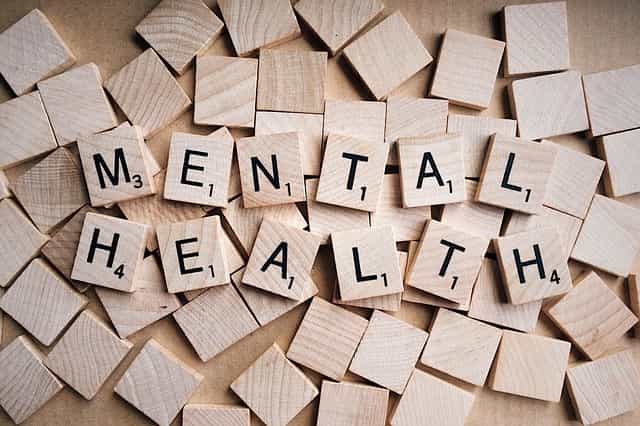Food and Mental Health
How Your Diet Can Affect Mental Health
There is scientific validation for what our forefathers always professed and practiced. Evidence suggests that there is a definite relationship between food and mental health. Deficiency of essential nutrients can contribute to poor mental health, according to experts in nutritional psychiatry. This growing discipline uses diet as an interventional therapy to decrease the risk of psychiatric disorders and promote mental health.
Healthy food and mental health go hand in hand. Your entire body is a well-oiled machine that responds optimally to the intake of the right nutrients. Here are some nutritional therapies:
Dietary therapy
Experts have long known that certain substances have a positive bearing on health
such as Omega-3 fatty acids. Scientists are increasingly becoming aware that a good diet can bolster our immune systems and render them strong against the debilitating effects of stress.
Cells in the brain are constantly growing and thus require ample measures of protein-building blocks, enzymes, brain tissues, and neurotransmitters. Good foods and food substances are protein-building blocks, which help to nourish the body. Omega-3 and zinc help the brain function better, whereas excessive refined flour and high levels of sugar can negatively impact brain cells.
Probiotics are living organisms that include yeast and good bacteria. Experts say they are essential to check inflammation in the brain and promote the production of vitamins. The modern-day diet has a marked increase in the consumption of sugary and high-energy food items and decreased levels of fiber-dense, nutrient-rich foods. Eating more whole grains, fresh fruits, and vegetables and cutting down on oil and sugar can be healthier for the body. B vitamins, iron, omega-3 fatty acids, zinc, and fermented food might help in alleviating psychiatric syndromes.
Making changes
It is not only what you consume but how it is grown, processed, and cooked that makes a difference. Eating organically grown whole grains, fruits, and vegetables, using minimal oil and salt, and avoiding too much high heat retains the freshness and nutrient-rich properties of food. Changes in diet can improve one’s physical and mental health.
Nonconventional medicinal therapy
Complementary and alternative medicines, such as Ayurvedic and Unani medicine (two types of medicine that originated in India), homeopathy, yoga, and naturopathy medicine are popular among some people with mood disorders who have not responded well to more conventional Western medicines and treatments. These complementary and alternative medicines are often cost-effective and might have fewer side effects.
Research on these alternative medicines is still in the beginning stages. Some perceive these medicines to have less instantaneous results compared to conventional medicines. Yet, research is showing positive trends and feedback from patients. Clinical trials have been examining how the application of many of these medicines can affect health.
Culinary therapy
Culinary therapy includes intervention techniques that take a holistic view of mental health. An increasing number of therapy centers and behavioral counseling centers are using culinary therapy as part of their treatment regimen. Clinical studies on the topic can be hard to find, but food-based therapy makes perfect sense if you consider that the brain is a vibrant organ. The brain uses many of the body’s nutrients and exhausts the metabolism at an alarming rate.
Cooking food from scratch has innate benefits. Cooking can help people unwind from the pressure of daily life. It urges people to pay attention to the job at hand. The cooking activates people’s sensory glands and whets their appetites. It encourages people to connect to the world outside their perspectives and to be creative and be grateful for the food on their plates.
Some people compare the process of cooking to meditation and other mindful practices. Some useful books on the subject are:
- The Healthy Mind Cookbook: Big-Flavor Recipes to Enhance Brain Function, Mood, Memory, and Mental Clarity, by Rebecca Katz.
- The MIND Diet Cookbook: Quick and Delicious Recipes for Enhancing Brain Function and Helping Prevent Alzheimer’s and Dementia, by Kristin Diversi.
- Diet for the MIND: The Latest Science on What to Eat to Prevent Alzheimer’s and Cognitive Decline, by Martha Clare Morris.
- The Everything Guide to the MIND Diet: Optimize Brain Health and Prevent Disease with Nutrient-Dense Foods, by Christy Ellingsworth and Murdoc Khaleghi.
Horticulture therapy
Psychologists and occupational therapists are researching the therapeutic impact of creating and nurturing healthy foods through backyard Organic Garden?” target=”_blank” rel=”-“>Organic Gardening or private terraces.
Gardening has a calming effect on the brain. The activity can minimize levels of cortisol, a stress hormone that aggravates anxiety. Gardening can also improve self-esteem and encourage positivity and creativity. Researchers have found that people with dementia and ADHD (attention deficit hyperactivity disorder) experienced improvements in their conditions when they interacted with nature. organic food and mental health go hand in hand.
The benefit of growing something naturally from seed to dinner plate is an innovative way of promoting the importance of good, clean food that is free from the use of excessive fertilizers and pesticides. Gardening can help individuals and provide service to communities and larger causes. London-based enterprise Sustain is developing projects that establish direct connections among organic farming, health, and well-being.
The relationship between drug/alcohol abuse and mental health
Researchers estimate that around 60 percent of U.S. residents have experienced both mental health conditions and substance abuse. Prolonged alcohol and drug abuse can aggravate psychotic reactions and cause chemical changes in the brain. This could lead to mental stress and cognitive impairment, especially if people begin using as adolescents.
Sometimes, people with undiagnosed mental health conditions use substances as a form of self-medication, which could lead to drug and substance abuse. To treat co-occurring symptoms of drug abuse and mental health issues, holistic addiction treatment centers use integrated approaches that target both disorders. They take a holistic view of the situation and use practices such as meditation, individual/group counseling, peer support, and detoxification and management of withdrawal symptoms.
Dieting affects mental health. To stay healthy, we can grow our vegetables, eat natural foods cooked in healthy ways, and avoid processed foods. To treat health problems, we might consider using herbal medicine, homeopathy, and drug-free treatments. These tactics can help us improve our food and mental health.
BIO:
Charles Watson is the current head writer for Sunshine Behavorial Health. A lifelong health advocate, he currently can be reached directly on Twitter at @charleswatson00, or at https://www.sunshinebehavioralhealth.com






As the writer of this content, I wanted to post a quick message. Sometimes we forgot how much our diet and the food we consume helps us in many ways. Let us not forget that.